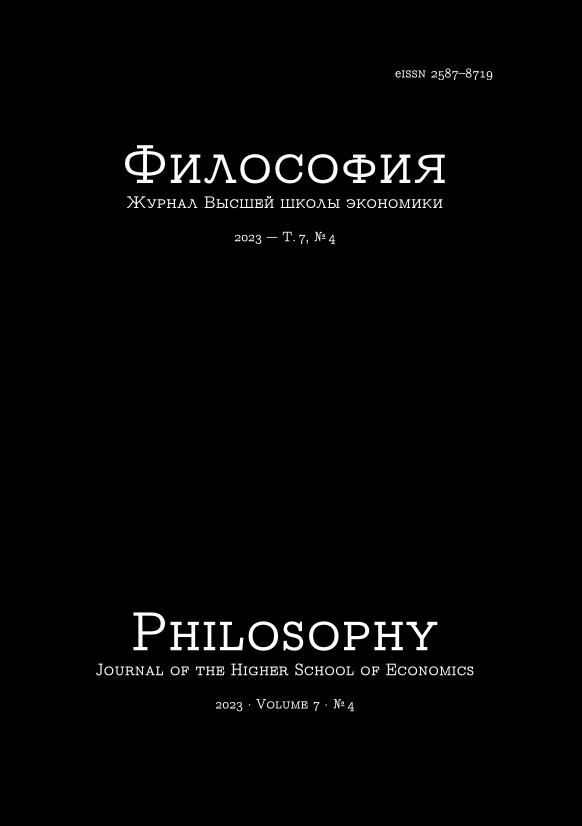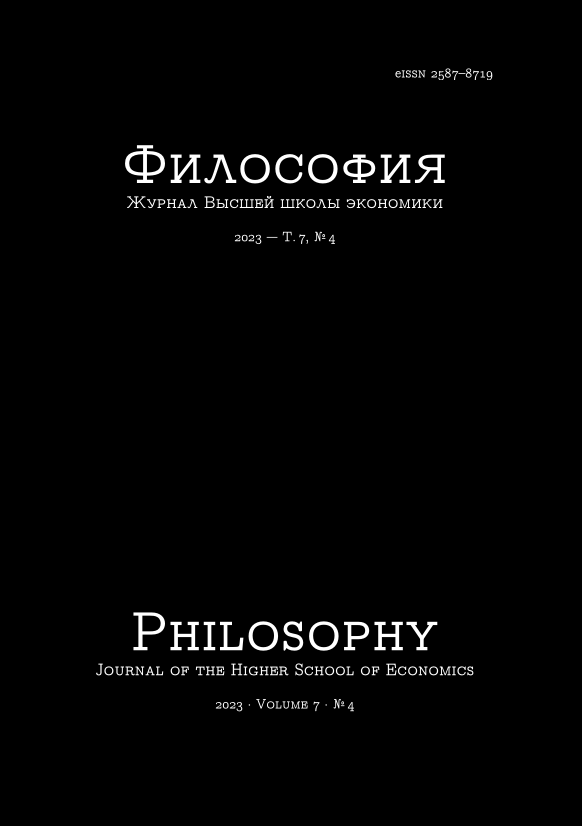
В центре внимания этого номера нашего журнала, последнего в 2023 году, оказывается женская философия. Слово «женская» можно понимать очень по-разному, и уже поэтому стоит сказать об этом несколько поясняющих слов. Нас интересует и философия, которую делают женщины как авторы, и философия, концентрирующаяся на проблемах женщин как членов общества. Именно поэтому номер открывается статьей Софьи Порфирьевой и Марии Стениной, посвященной критике нормативного насилия Джудит Батлер и Сары Ахмед, и продолжается исследованием Анастасии Адамовой о феномене материнства как об одном из формирующих факторов женского в феминистском дискурсе. Продолжает номер ряд статей, посвященных фигурам женщин-философов, когда-то известных, а сейчас незаслуженно забытых. Речь идет об исследовании Екатерины Кошолап, в центре которого оказались фигуры женщин — членов партии кадетов, а также о статье Любови Богодельниковой, посвященной М.В. Безобразовой, о работе Софьи Никифоровой и Екатерины Михеевой, рассказывающей о Рае Дунаевской. Примыкает к этим трудам написанный Ольгой Левиной и Тимуром Саевым текст, героем которого оказывается Дамарис Кадворт Мэшем, изучаемая как философ естественного права. Замыкает этот блок статья Дианы Гаспарян, посвященная интерпретации идей М. Бахтина в феминистской теории.
Второй блок раздела «Исследования» состоит из четырех статей, первой из которых стоит назвать «Кентавра на опушке леса» Майи-Софии Жуматиной. Эта работа посвящена рассмотрению гегелевской истории искусства, увиденной с позиций темпорального дискурсивного насилия. Затем следует статья Максима Мирошниченко, посвященная современным проблемам биоэтики. Замыкают блок исследования Максима Горбачева и Василия Шангина, обращающиеся к проблемам логики, эпистемологии и онтологии.
Традиционный для нашего журнала блок «Переводы и публикации» в этот раз включает в себя транскрипцию никогда не публиковавшейся ранее рукописи Гуго Сен-Шерского и ее перевод на английский язык, сделанный Федором Нехаенко. Сопровождает перевод и транскрипцию обширная, написанная автором перевода вступительная статья, в которой подробно рассматриваются и фигура Гуго Сен-Шерского в контексте его эпохи, и значение публикуемой в номере рукописи. Перевод представляет собой критическое издание, что означает, что он включает в себя оригинальный текст манускриптным и критическим аппаратом, а также английский перевод, что позволяет ученым глубже и детальнее работать с материалом.
Замыкают номер две рецензии. Первая из них посвящена недавно вышедшей книге Хосе-Луиса Вильяканьяса Берланги, в которой он обращается к фигуре виднейшего испанского философа ХХ века Хосе Ортеги-и-Гассета. Автор рецензии — докторант Комплутенского университета Мадрида Роман Устьянцев. Вторая рецензия написана Дианой Гаспарян и Александром Кочековским: она посвящена свежей монографии о творчестве Михаила Бахтина.
Последний материал номера — обзор секции по либеральной теории в XXI веке, прошедшей в рамках конференции Школы философии и культурологии НИУ ВШЭ «Мир/миры будущего» в этом году.






